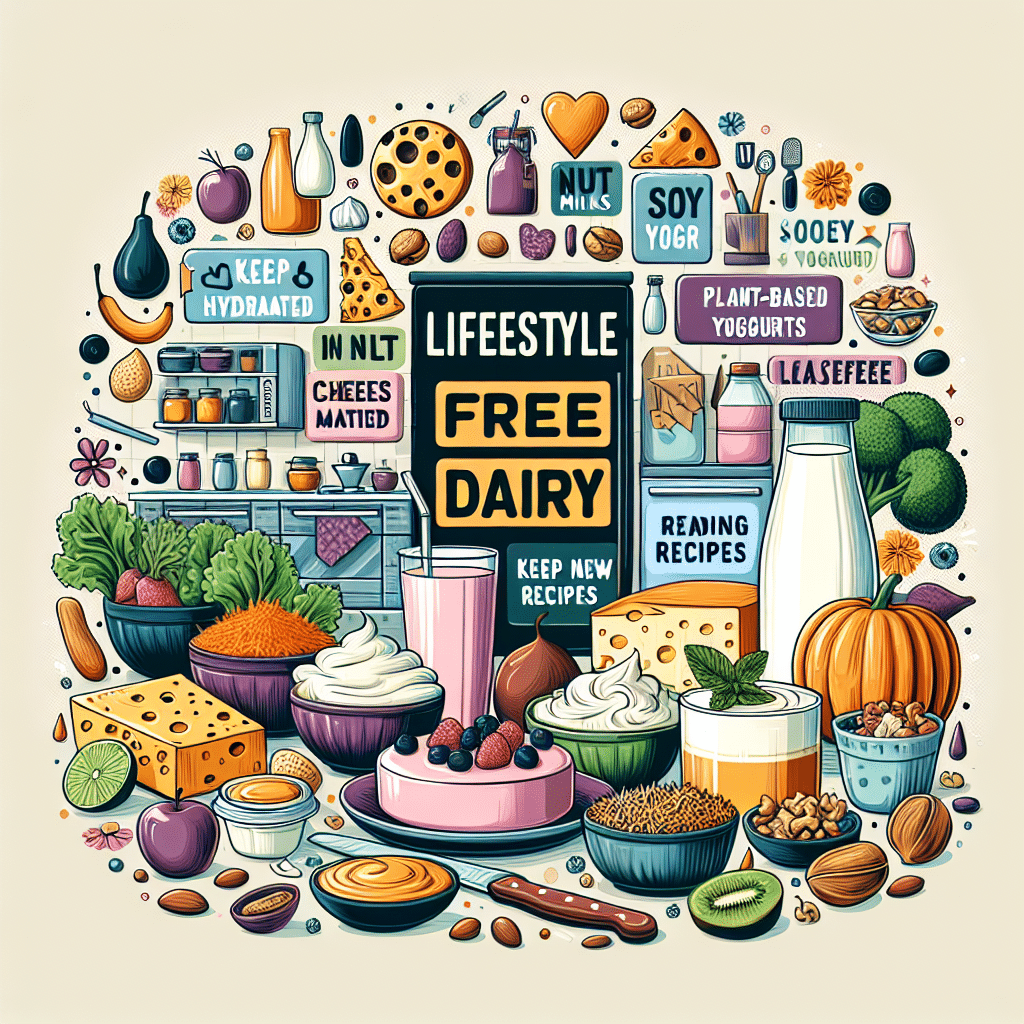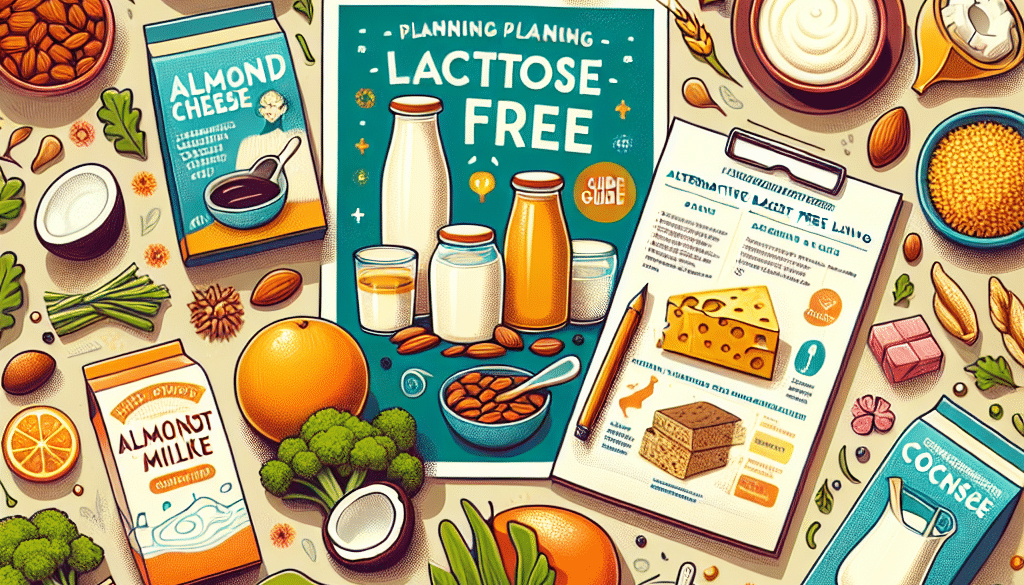Dairy-Free Foods: Lactose-Free Living Tips
-
Table of Contents
- Dairy-Free Foods: Essential Tips for Lactose-Free Living
- Understanding Lactose Intolerance and Dairy Allergies
- Exploring Dairy-Free Alternatives
- Navigating Nutrition on a Dairy-Free Diet
- Reading Labels and Identifying Hidden Dairy
- Cooking and Baking Without Dairy
- Case Studies and Success Stories
- Conclusion: Embracing a Dairy-Free Lifestyle
- Discover ETprotein’s Plant-Based Protein Products
Dairy-Free Foods: Essential Tips for Lactose-Free Living

Embracing a dairy-free lifestyle can be a transformative experience for those with lactose intolerance, allergies, or dietary preferences. The journey to lactose-free living is not without its challenges, but with the right knowledge and resources, it can be a smooth and enjoyable transition. This article will provide valuable insights and practical tips for anyone looking to explore the world of dairy-free foods.
Understanding Lactose Intolerance and Dairy Allergies
Lactose intolerance occurs when the body lacks the enzyme lactase, which is necessary to digest lactose, the sugar found in milk and dairy products. Symptoms can include bloating, gas, and abdominal discomfort. A dairy allergy, on the other hand, is an immune response to the proteins found in milk, which can lead to more severe reactions.
It’s important to distinguish between these two conditions, as they require different dietary considerations. For those with lactose intolerance, lactose-free dairy products may be suitable, while individuals with a dairy allergy must avoid all dairy proteins.
Exploring Dairy-Free Alternatives
Fortunately, the market for dairy-free products has expanded significantly, offering a variety of alternatives that cater to lactose-free diets:
- Plant-Based Milks: Almond, soy, oat, rice, and coconut milk are popular substitutes for cow’s milk.
- Cheese Alternatives: Look for cheese made from nuts like cashews or soy.
- Yogurt and Ice Cream: Plant-based yogurts and ice creams are readily available and often made from the same milks listed above.
- Butter Substitutes: Margarine and oils like coconut or olive oil can replace butter in cooking and baking.
When selecting dairy-free alternatives, it’s essential to read labels carefully, as some products may contain additives or sweeteners that you may wish to avoid.
Navigating Nutrition on a Dairy-Free Diet
One of the primary concerns when eliminating dairy is ensuring adequate intake of certain nutrients, particularly calcium and vitamin D. Here are some dairy-free sources of these essential nutrients:
- Calcium: Leafy greens, fortified plant milks, tofu, almonds, and sesame seeds.
- Vitamin D: Sunlight exposure, fortified foods, mushrooms, and supplements.
It’s also important to consider protein intake, as dairy is a common protein source. Plant-based proteins such as legumes, nuts, seeds, and whole grains can help fill this gap.
Reading Labels and Identifying Hidden Dairy
Dairy can be found in many processed foods, sometimes where you least expect it. Learning to read ingredient labels is crucial for avoiding dairy. Look out for terms like whey, casein, lactose, and milk solids, which indicate the presence of dairy.
Cooking and Baking Without Dairy
Adapting to dairy-free cooking and baking can be a creative and rewarding process. Here are some tips for making your favorite dishes without dairy:
- Use plant-based milks: They can be substituted in a 1:1 ratio for cow’s milk in most recipes.
- Try dairy-free butters: They work well for sautéing and baking.
- Experiment with nutritional yeast: It provides a cheesy flavor to sauces and toppings.
- Embrace coconut cream: It’s a great alternative for heavy cream in recipes.
With a bit of experimentation, you can recreate dairy-free versions of your favorite dishes that are just as delicious as the originals.
Case Studies and Success Stories
Many individuals and families have successfully transitioned to a dairy-free lifestyle. For example, a study published in the “Journal of the Academy of Nutrition and Dietetics” found that participants who adopted a plant-based diet, including dairy-free alternatives, experienced improvements in digestion and overall health.
Personal success stories abound online, with countless individuals sharing their journeys toward a healthier, dairy-free life. These anecdotes can provide motivation and practical advice for those just starting out.
Conclusion: Embracing a Dairy-Free Lifestyle
Living dairy-free is not only possible but can also be a positive and healthful choice. With the abundance of dairy-free alternatives available, careful attention to nutrition, and a willingness to experiment in the kitchen, anyone can enjoy a rich and varied lactose-free diet. The key is to stay informed, be mindful of hidden dairy ingredients, and embrace the wealth of resources and support available.
Discover ETprotein’s Plant-Based Protein Products
If you’re looking for high-quality plant-based protein to complement your dairy-free diet, ETprotein offers a range of products that can help. Their organic bulk vegan protein options, including rice protein, pea protein, and various seed proteins, are perfect for those seeking non-GMO, allergen-free alternatives.
ETprotein’s products are ideal for a variety of applications, from sports nutrition to health and wellness. Whether you’re a manufacturer, distributor, or simply someone looking to enhance your protein intake, ETprotein has the solutions to meet your needs.
About ETprotein:
ETprotein, a reputable plant protein vegan protein Chinese factory manufacturer and supplier, is renowned for producing, stocking, exporting, and delivering the highest quality organic bulk vegan protein and plant proteins. They include Organic rice protein, clear rice protein, pea protein, clear pea protein, watermelon seed protein, pumpkin seed protein, sunflower seed protein, mung bean protein, peanut protein etc. Their offerings, characterized by a neutral taste, non-GMO, allergen-free attributes, cater to a diverse range of industries. They serve nutraceutical, pharmaceutical, cosmeceutical, veterinary, as well as food and beverage finished product distributors, traders, and manufacturers across Europe, USA, Canada, Australia, Thailand, Japan, Korea, Brazil, and Chile, among others.
ETprotein specialization includes exporting and delivering tailor-made protein powder and finished nutritional supplements. Their extensive product range covers sectors like Food and Beverage, Sports Nutrition, Weight Management, Dietary Supplements, Health and Wellness Products, and Infant Formula, ensuring comprehensive solutions to meet all your protein needs.
As a trusted company by leading global food and beverage brands and Fortune 500 companies, ETprotein reinforces China’s reputation in the global arena. For more information or to sample their products, please contact them and email sales(at)ETprotein.com today.












